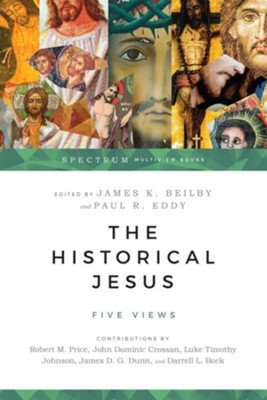


Dates of the biblical records: Biblical commentators believe the synoptic Gospels-Matthew, Mark and Luke-were written 20 to 30 years after Jesus’ resurrection.God has ensured that the historical record of Christ’s resurrection would be preserved accurately for us. This contrasts with relatively few documents about some historical figures such as Julius Caesar. Numerous reliable texts: There are many documents, manuscripts and fragments of the Bible, Old and New Testament, in addition to secular sources that speak of Christ’s resurrection.Consider the following evidence confirming Jesus’ resurrection: The events described had such an impact on some of Christ’s former enemies and disciples that they gave their lives believing in Him as their resurrected Savior. The records we will be examining are available worldwide. Can we prove to ourselves from the Bible that Jesus Christ was raised from the dead and lives today? (Along with this article, be sure to read the accompanying article “ Resurrection of Jesus: Can We Prove It?”) People were questioning one of the fundamentals of Christianity-that we have a resurrected Lord. The apostle Paul had to quash rumors in the Corinthian congregation that Jesus Christ had never been resurrected at all, so in 1 Corinthians 15:5-8 he named eyewitnesses who had been with the resurrected Christ. In this expanded second edition Bauckham has added a new preface, three substantial new chapters that respond to critics and clarify key points of his argument, and a comprehensive new bibliography.Was Jesus actually resurrected? Many critics today find it hard to believe Jesus’ resurrection ever occurred.

Finally, Bauckham challenges readers to end the classic division between the "historical Jesus" and the "Christ of faith," proposing instead the "Jesus of testimony" as presented by the Gospels. Jesus and the Eyewitnesses also taps into the rich resources of modern study of memory, especially in cognitive psychology, refuting the conclusions of the form critics and calling New Testament scholarship to make a clean break with that long-dominant tradition. To drive home this point, Bauckham draws on internal literary evidence, the use of personal names in first-century Jewish Palestine, and recent developments in the understanding of oral tradition. Noted New Testament scholar Richard Bauckham challenges the prevailing assumption that the stories about Jesus circulated as "anonymous community traditions," asserting instead that they were transmitted in the names of the original eyewitnesses. This critically acclaimed work argues that the four Gospels are based on the eyewitness testimony of those who personally knew Jesus.


 0 kommentar(er)
0 kommentar(er)
